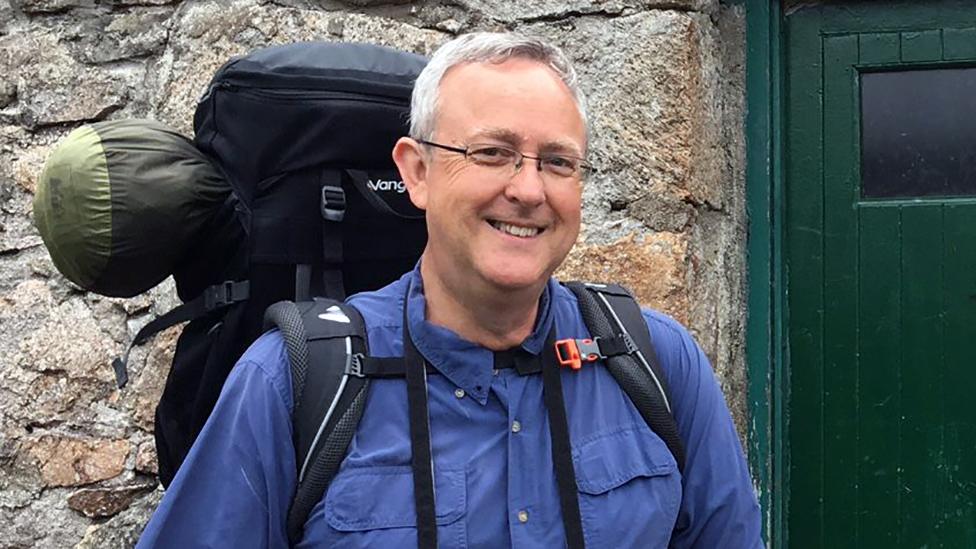Hillwalkers warned more than a phone is needed to navigate mountains
- Published
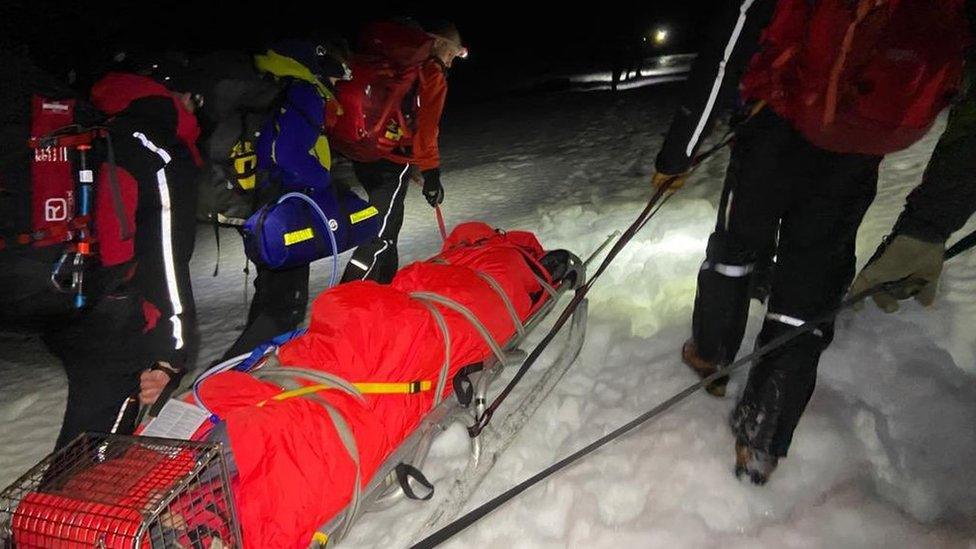
Mountain rescues have been on the rise
Walkers venturing up Scotland's mountains have been warned they need more than a phone in order to be able to navigate safely.
Mountaineering Scotland said phones were often being used in place of the traditional map and compass.
Some people do not realise phones will just switch off at cold temperatures, leaving them stranded.
The warning came amid a rise in the number of rescues on Scotland's peaks in recent months.
Volunteers from mountain rescue teams go out in all weathers to help those in difficulty.
Mountaineering Scotland safety advisor Ben Gibson recommended not just relying on a phone.
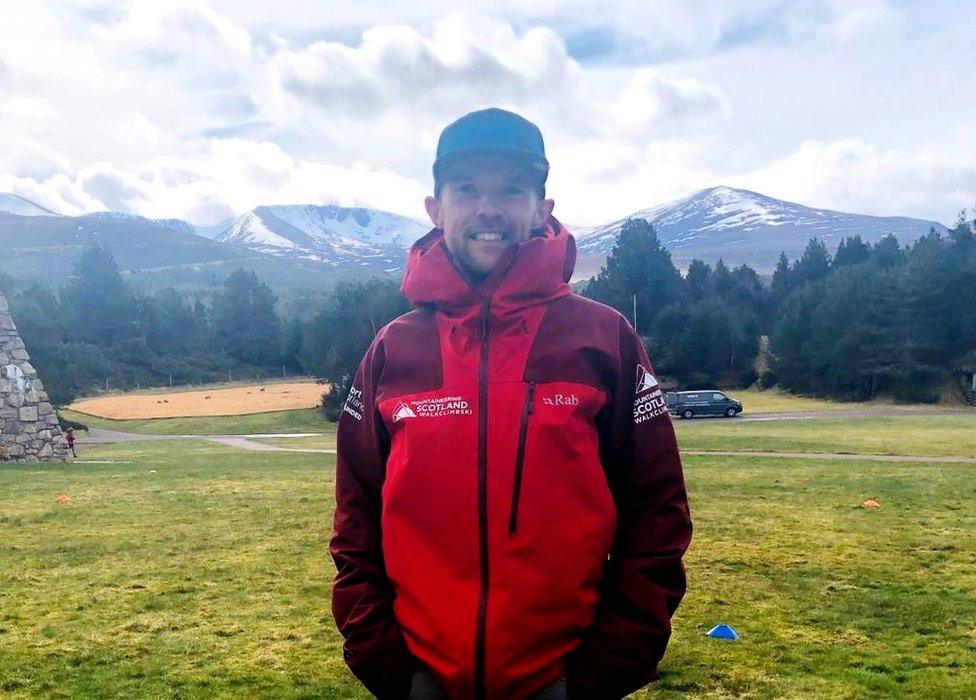
Ben Gibson said a map and compass are essential
"Technology nowadays and having GPS on your phone is fantastic and makes navigation that much easier," he said.
"But there definitely are challenges with the fact if you go out in the mountains with just your phone the screen size limits you to a small area, can you zoom in and out all the time with your gloves on? And it's going to use the battery.
"Having an addition of a map and compass allows you to cover a much wider area, and a power bank."

'Proper kit save my life when I fell'
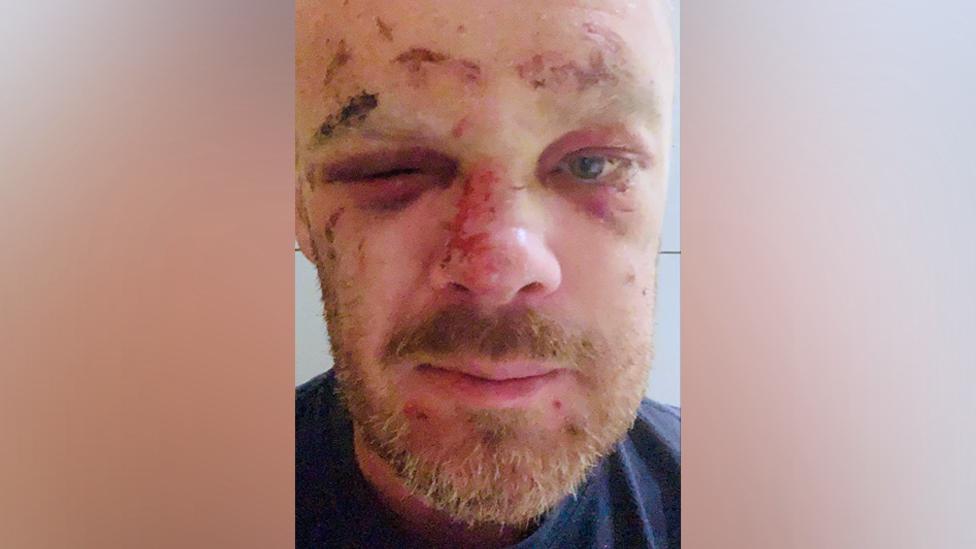
Simon Peter Macaulay was rescued on Ben Nevis
Experienced mountaineer Simon Peter Macaulay was badly injured when he fell on Ben Nevis, and believes his life was saved by having proper equipment such as a helmet.
"You think that nothing bad will ever happen to you," he said of the incident in January.
"I misstepped, or made a mistake of some sort, and ended up down the bottom of the hill. The guys who found me said one my of axes and a glove were quite near the top."
He was flown to hospital where he spent four days being treated.
He said having the the right kit saved him, and he felt "lucky and thankful".
"It was kind of embarrassing to be honest, when you come to in the hospital, you feel a bit disappointed in yourself, it's kind of sobering.
"You see a lot of reports about callouts, it's worrying."

Matt Smith, from Braemar Mountain Rescue and Police Scotland Mountain Rescue, said good rigid winter boots, crampons and an ice axe are needed - as long as the person has the skill and experience to use them.
Warm clothes, food, and second option - a plan B such as turn back if need be - are also recommended.
"Anything we can do to prevent incidents on the hill is a really good thing," he said.
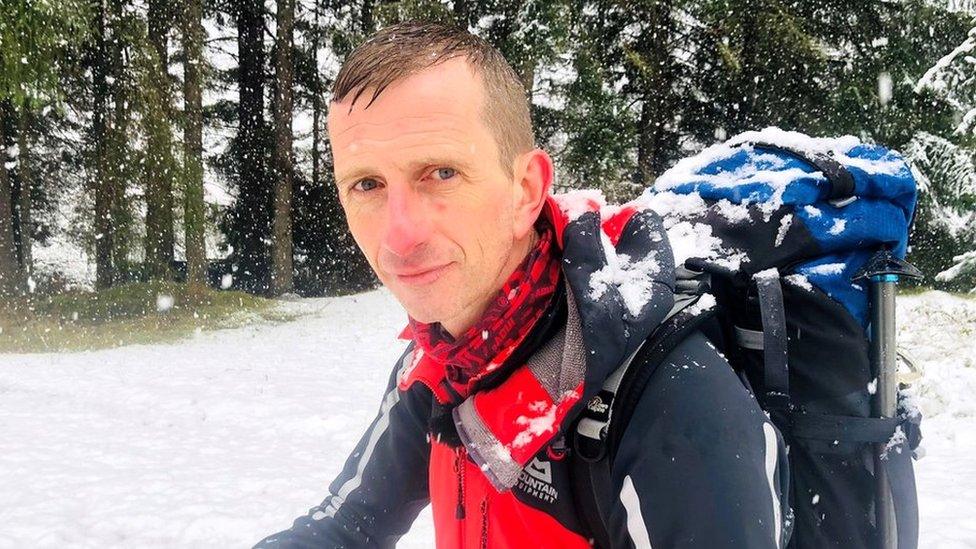
Mountain rescue leader Matt Smith said climbers need the correct equipment
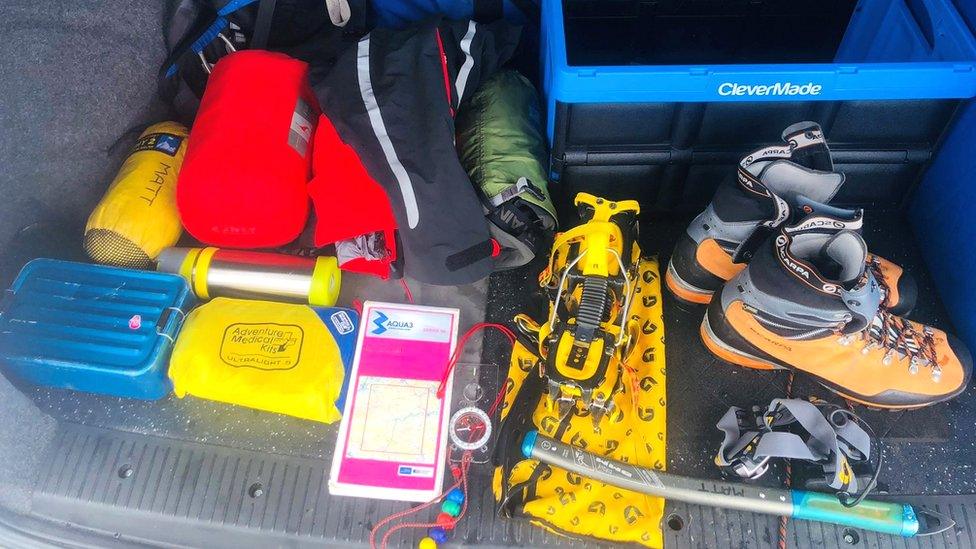
The right equipment is said to be vital
"We had a really challenging couple of weeks at the start of March, and that was basically because we had beautiful snow lying on the ground but it was rock hard, really icy, and blue sky conditions.
"So there was a surge in people coming outside to try and almost get a piece of that.
"They weren't necessarily prepared for those conditions, they weren't carrying the right kit or equipment, or sometimes they didn't have the right experience."
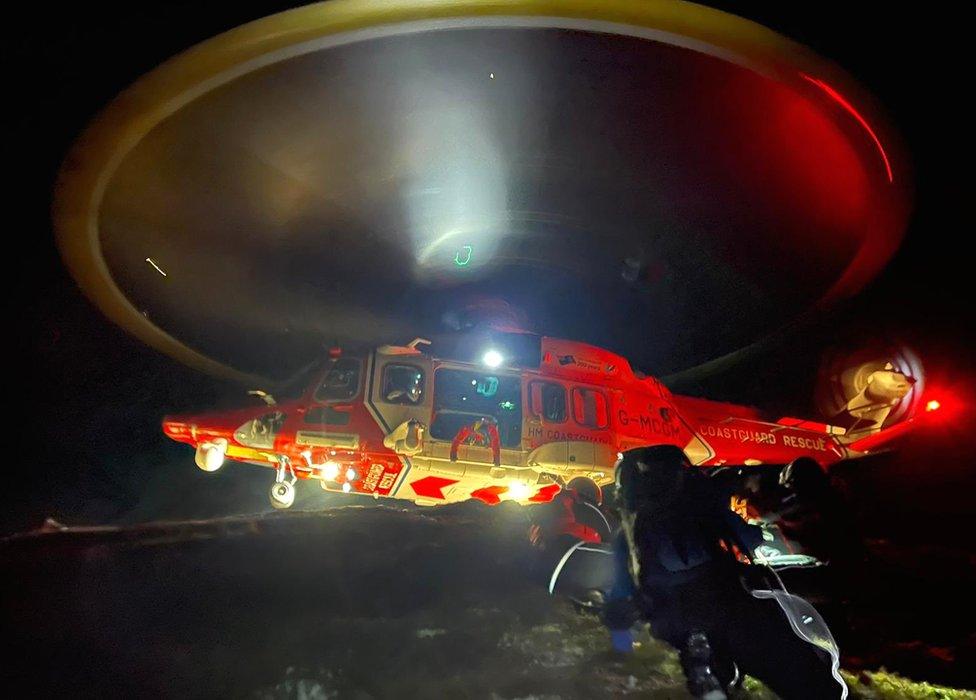
Helicopters are often called in to assist
He explained: "I think this is one of the key messages about preparedness, people really need to understand that weather conditions can change.
"They need to select an objective in keeping with their own experience, abilities and fitness levels.
"You need to check the weather conditions for your intended destination and not the car park."
Related topics
- Published11 March 2022
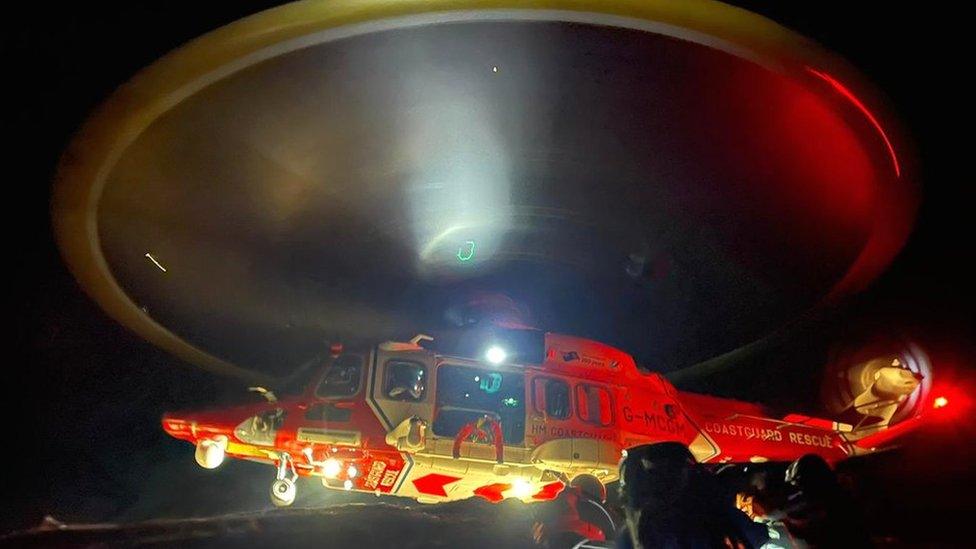
- Published20 February 2022
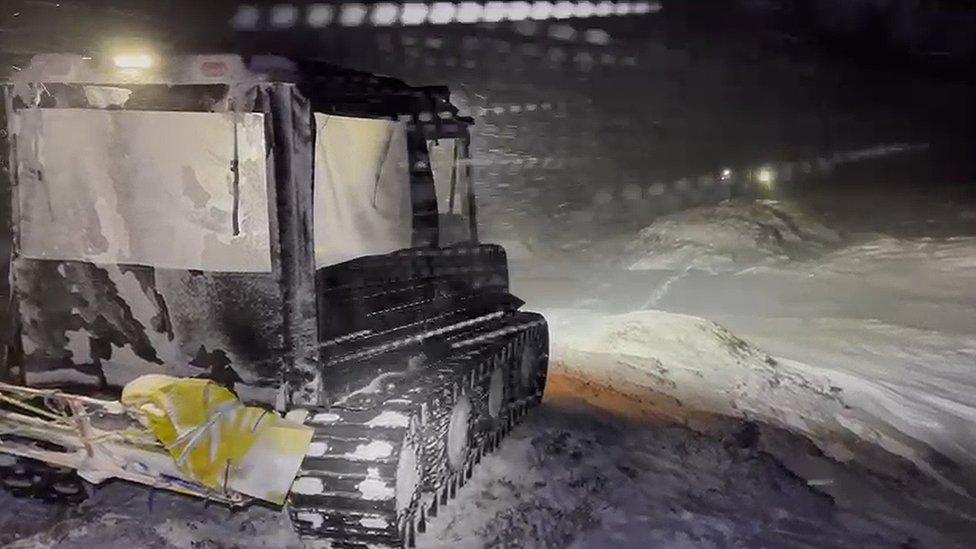
- Published8 December 2021
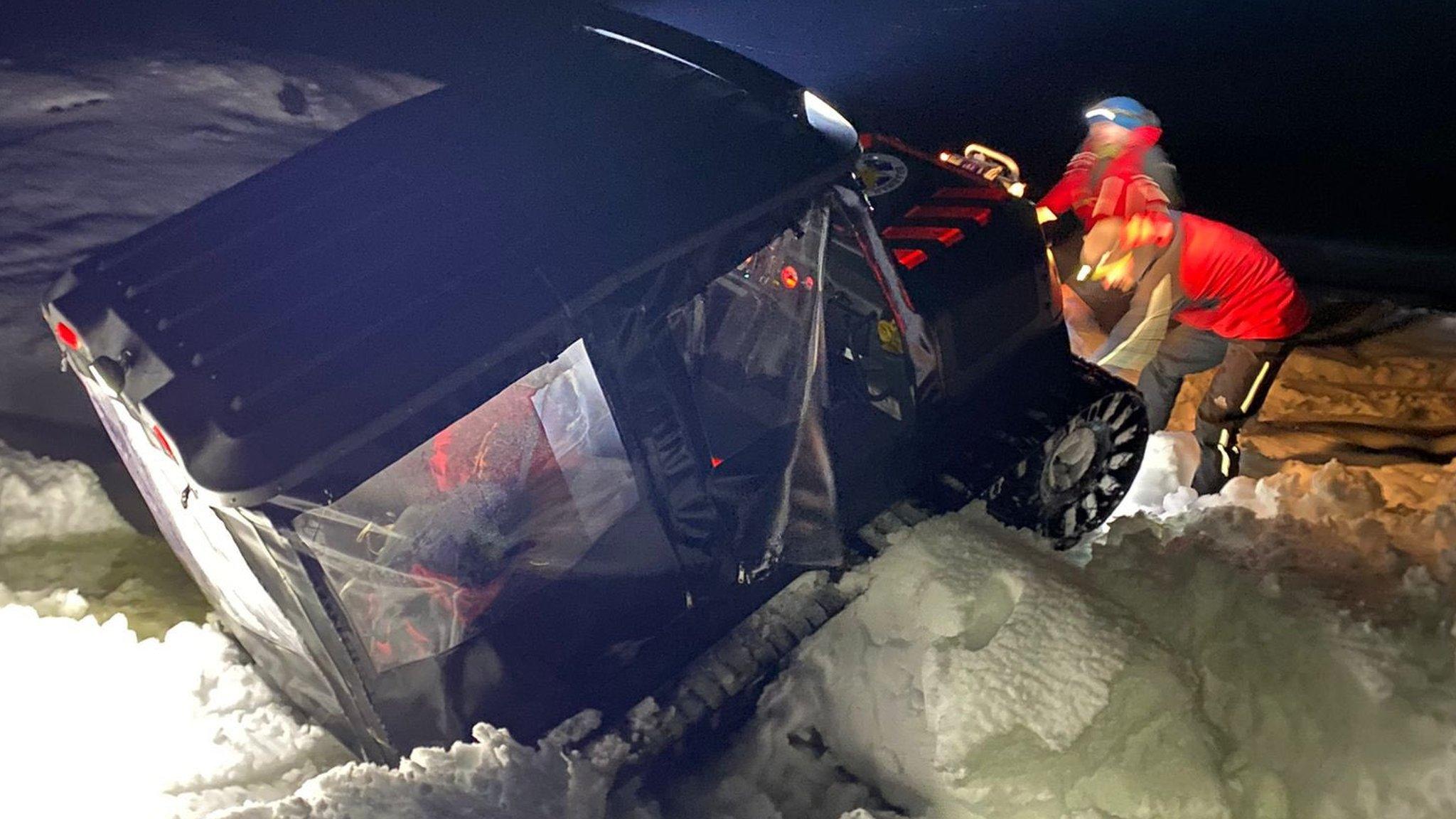
- Published15 October 2021
